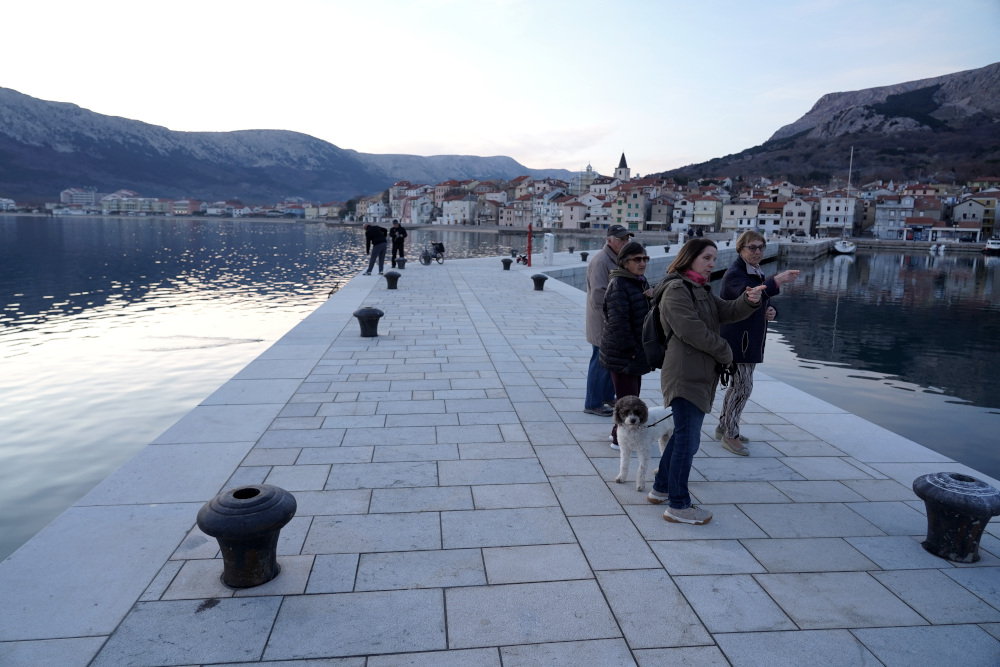
On one of the piers in the port of Baška – photo by Davide Sighele
As in other areas of the Croatian coast, also in Baška, a municipality on the southern tip of the island of Krk, the local administration is facing depopulation in the winter months and saturation in the summer ones. We talked about it with its mayor, Toni Juranić
What are the main difficulties you find yourself having to manage in a small municipality like Baška, where in summer the presence of tourists explodes?
It is certainly a source of major problems, first of all for the municipal infrastructure. In Baška we have 1700 residents, while in the summer with tourists and vikendisti, i.e. those who have second homes here and come over the weekend from Rijeka, Zagreb, and other continental places, in addition to the daily migration – i.e. those who come during the day to enjoy its natural beauty – we reach 17-18,000 visitors. So ten times the number of residents, with a massive arrival of cars that fill the streets and parking lots, spaces that we lack.
A problem that is not easy to solve, that of the great difference in attendance between winter and the tourist season, which affects not only Baška but all the coastal towns of the Primorje-Gorski Kotar Region. It means, for example, that the aqueduct pipes must have a higher capacity, and so must the sewers as well as the places to park cars.
Tourism does bring large revenues, but this large fluctuation of people in the area means we find ourselves spending a lot on the maintenance of public infrastructures and on ensuring municipal services.
What are the municipality's main development projects underway?
When I became mayor of Baška, the private sector had a fairly high standard thanks to tourism, while the public sector still had some shortcomings. So I made it a priority to fill them and we invested a lot. We built the new nursery school and kindergarten, with European standards, renovated the school and built a new gym and then we invested in municipal structures: roads, aqueducts, sewers, in short, infrastructure in general.
In the regulatory plan we have foreseen the increase of parking areas. By the end of the year we are completing the end of the port enlargement project thanks to European funds, and then we are planning the construction of a solar park for the production of electricity.
We are also working on the implementation of fast fiber, because at the moment the Internet is a bit slow in some areas of the country, and it is of great importance for the functioning of the public as well as private sectors. Also in this case we used European funds as part of a project that involved the whole island. The project is worth 10,550,000 Euros [the “SMOK – Svjetlovodna mreža otoka Krka ” project involves the implementation of Next Generation Access – NGA with a non-repayable co-financing of 7,646,000 Euros from EU cohesion funds, ed.] and is scheduled to end on October 31, 2023. On the territory of the municipality of Baška we will have 1500 new fast Internet connections, with a speed of 100 Mbit/sec.
To improve services for those who live here all year round, does the municipality have enough resources?
Obviously, money is always tight, but we have been reaching out to young people above all, with a series of initiatives. For example, our nursery school is completely free. Then, to support the birth rate, we issued checks on the birth of children: 5,000 kuna (663 Euros) for the first child, 7,000 (929 Euros) for the second, 10,000 (1,327 Euros) for the third one and so on. We have a scholarship programme, from 150 to 200 Euros, which is quite a high amount for living conditions in Croatia. These expenses are covered partly by the state and partly by the municipal budget.
All this to try and encourage young people to stay and live here and to make their life simpler and more serene. We know that here, as in all of Croatia but also in other European countries such as Italy, the number of young residents is decreasing every year and therefore the population has an increasingly higher average age, with many elderly people.
Always with the same objective, through the APN (Agencija za pravni promet i posredovanje nekretninama – Agency for transactions and real estate brokerage), we built 13 apartments in Jurandvor (a small settlement 2 km from the centre of Baška) for single people, or young couples, who did not have any other real estate to live in, who lived in a house with parents or grandparents, for a total expenditure of around 2 million Euros. It is a project that began two years ago and ended this year; they were able to buy them at a controlled price, a maximum of 1,350 Euros per sq m, a figure which is favourable for Croatia, but above all for Baška. It is a programme that the state has implemented throughout the country with the involvement of the municipalities.
We have not forgotten the elderly. We have a social programme to support those with low wages or pensions, although fortunately there are very few such cases in Baška. So those with a low pension, for example, are exempt from paying municipal taxes, we offer monthly subsidies to be able to live with rising inflation and this crisis that is affecting Europe.
How is the municipality involved in European projects? Do you have an internal officer who takes care of it?
As far as European projects are concerned, it has been a real challenge for us. At the beginning we used external consultants, while recently we have an internal person who has this task. So follow the announcements, search for funds, etc. But I must say that we have worked well so far with the Ponikve offices regarding projects with large capitals. It is a public company, operating on the whole island of Krk, whose founders are all the local authorities of the island and therefore the City of Krk and six municipalities: Baška, Dobrinj, Malinska-Dubašnica, Omišalj, Punat, Vrbnik.
We can say that Ponikve is the company that manages all the projects that involve the investment of large capitals. For example, the large wastewater treatment project still underway across the island, including in Baška, carried out with several million Euros from non-repayable funds from EU cohesion policy.
It is much easier if we operate as an island, rather than as a single local autonomy and each on its own... So, overcoming any political orientation, from right to left, we are all involved and our objectives are very clear and shared in the direction of energy independence and a green island. To give a small example, with a minimal investment in my municipality we changed all the old public lighting that was ecologically unsustainable, replacing it with LED lamps. Thanks to this we are saving 55% of the previous energy expenditure, which means a lower output from the municipal budget. We did it with a loan from the Croatian Bank for Reconstruction and Development at very low interest, 0.01%.
In the future, we already plan to make this lighting adjustable according to needs, the hours of the day, the number of tourists...
Is there a tourist tax that goes directly into the coffers of the municipality?
Yes, we have two. One is the tourist tax, which partly goes to the state, partly for services such as the Red Cross and the Civil Protection, about 70% remains with the tourist community (Turistička zajednica) and of which, as required by law , the 30% must be reinvested in infrastructure development and the like aimed at tourism.
Then there is the ecology tax, which is paid by renters, 30 cents per night per tourist. It was first applied in Baška and in some Adriatic coastal towns, and goes directly into the municipal budget. By law, it is a sum used for "ecological" purposes, i.e. cleaning, to promote ecological integrity, and preserve natural resources. We plan to remove it in the future, if not next year the one after, to relieve the citizens who are suffering from the increase in the cost of living.
So in general it means that, fortunately or unfortunately, our income is directly linked to tourism, we live in a kind of "monoculture". Both direct and indirect, because if tourism stops tomorrow, I think we could lock up the municipality. Which is fine, as long as there is peace, as long as there is no war, no crisis. It is a very sensitive sector that depends on various factors, just look at what happened during the Covid pandemic, now there is the war in Ukraine, but we also remember during the war in the Balkans…
In ten years, what do you hope for, an increase in tourist numbers?
No, I believe that Baška has reached the maximum of its reception capacities, if we consider its natural resources such as the beach, but also in terms of the infrastructures. I think we need to continue working on quality, both in the private and in the public sector, and clearly charge for this quality. We cannot go so far as to ban coming to Baška, as has been thought for Venice, but the offer of high quality services and higher prices will reduce the arrival of an excessive number of tourists. There will be an increase in tourists, but there must be no peaks or excesses.
Consider that Baška has produced more than 1 million individual overnight stays by tourists in recent years, which is a lot for the size of our municipality. Just think that Abbazia, a coastal municipality of 10,000 inhabitants near Rijeka, has much fewer and it is a matter of tourism distributed throughout the year. While we suffer a very high peak in the summer, despite the presence of tourists being distributed somewhat even in May-June and October-November. Too much concentration causes discomfort and probably even nervousness in the residents.
You mentioned the project for a solar park for the production of electricity in which the municipality plays a crucial role...
Yes, but to be honest if I had known earlier about the difficulties and obstacles to this project, I don't know if I would have committed to it… everyone in Croatia is stuck on administrative bureaucracy. There is a lot of talk about sustainable energy development but then when you see the amount of papers and documents to prepare you find yourself 100 and more problems. You solve one, you finally catch your breath, but soon after another one shows up.
We started thinking about the photovoltaic park about eight years ago, maybe even more. Today we have all the papers, we can start working, but as the project was designed and conceived so many years ago, it has already aged. Today, say, the latest generation photovoltaic panels have greater performance, so we have to update the project and start with a more modern structure, with a smaller number of elements which will however produce the same power of 5 megawatts envisaged in the first version for a expenditure of 5.5 million Euros.
This is a cheaper project than eight years ago, whether it is done with our own funds or with loans, and we will be able to recoup the expense in a short time. Then we plan to create another one, always with a power of 5 megawatts, with the gain from the first one.
The Barbičin solar park will be built on a plateau behind the town, covering a total of 15 hectares.
We had thought of involving individual citizens, with their investments, creating a kind of joint-stock company. The idea remains but we will do it in a second phase, we would like citizens to begin to perceive the photovoltaic park as part of their community first, a significant step towards the sustainable and ecological development of the country, also seeing the reduction in bill expenditure. We expect to start the works at the end of this year, at the beginning of 2024 at the latest, and finish them in about three months.
The idea is to sell the energy in the first phase through the general grid, while in the second phase to use the new 5 kW for the needs of the municipality and possibly with ad hoc contracts to supply energy to the residents at favourable prices.
Are there other local authorities among the investors?
We had tried with other municipalities, but they have invested minimally for now, let's say "symbolic" figures, around 20-30,000 Euros. On the other hand, we were ready to carry it out on our own anyway because we think that the production of clean energy through the sun, wind, and water is convenient and has an important future. It is clear that with wind turbines that occupy less land more energy is produced, but in this area, like the whole coast, we have a long period and many hours a day of exposure to the sun, so it is equally profitable to focus on solar energy.
As for the port, what have you done so far and what do you plan for the future?
The project , which envisages four phases, is actually the responsibility of the Krk Port Authority which has signed a contract with the Ministry of the Sea, Transport and Infrastructure (Ministarstvo mora, prometa i infrastrukture ) which has ensured for the first two phases 5,463,706 Euros, of which 5,270,419 co-financed by the EU with cohesion funds and the remaining minimal part covered by the ministry. The first two phases are completed, i.e. the lengthening of the two main piers: the "Vela riva", built in 1892, lengthened by 50.55 metres and the "Mala riva", lengthened by 105 metres, with related columns for the supply of electricity to pleasure boats.
The second phase begins in April and the third phase will follow, for a total expenditure of around 2 million Euros, with which we will enlarge the old pier called "Garofulin". We will then build other piers and pontoons within the aquatic area of the port. By the beginning of next year, the port will therefore offer 243 new berths, including 93 for municipal use and 150 for pleasure boats. To this day, arriving boaters had nowhere to pick up and then left for other ports in Dalmatia. Thanks to this restructuring, they will be able to stay longer, sleep on land, eat in restaurants, and therefore the new piers represent a new tourist offer.
Tourism in Baška
Tourism in Baška began to develop at the beginning of the 20th century, precisely in 1904, when Baška had 4,000 inhabitants including the villages of Draga Bašćanska, Jurandvor, and Batomalj. At that time it was above all a maritime and commercial centre. The inhabitants of Baška were engaged in fishing, agriculture, and trade in wine, wood, oil, and bricks. See the historical reconstruction of how tourism developed in the following decades, on "Visit Baška".
This content is published in the context of the "Work4Future" project co-financed by the European Union (EU). The EU is in no way responsible for the information or views expressed within the framework of the project. The responsibility for the contents lies solely with OBC Transeuropa. Go to the "Work4Future"
















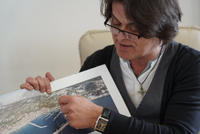
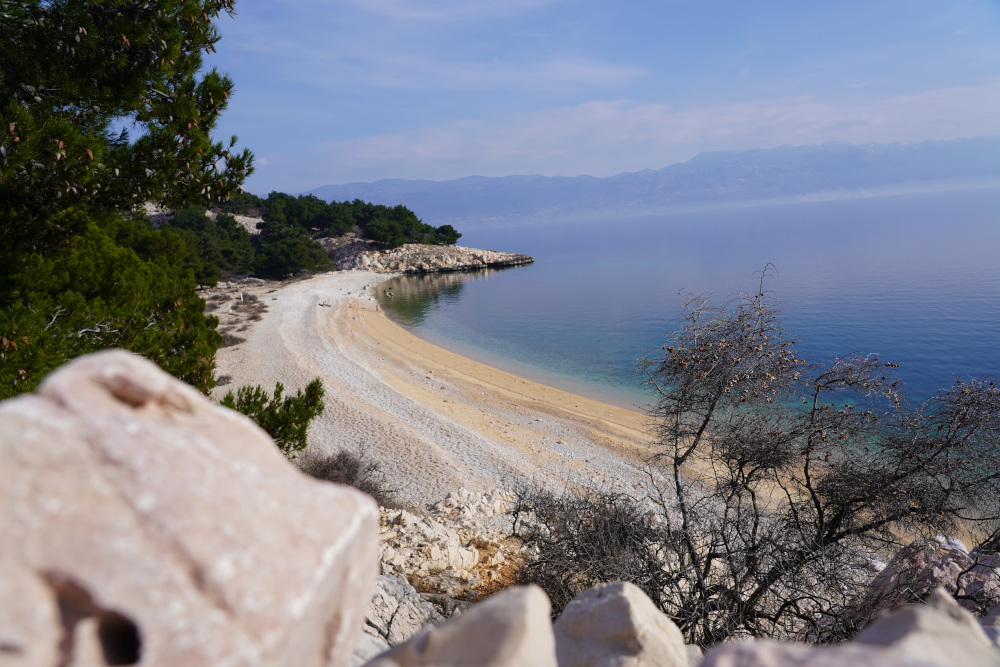
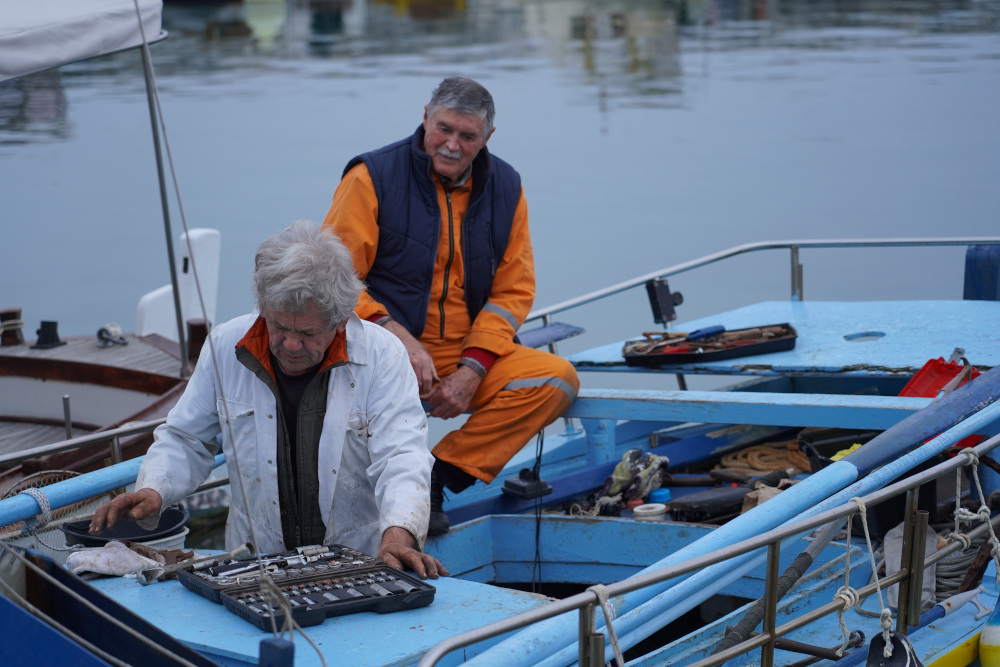
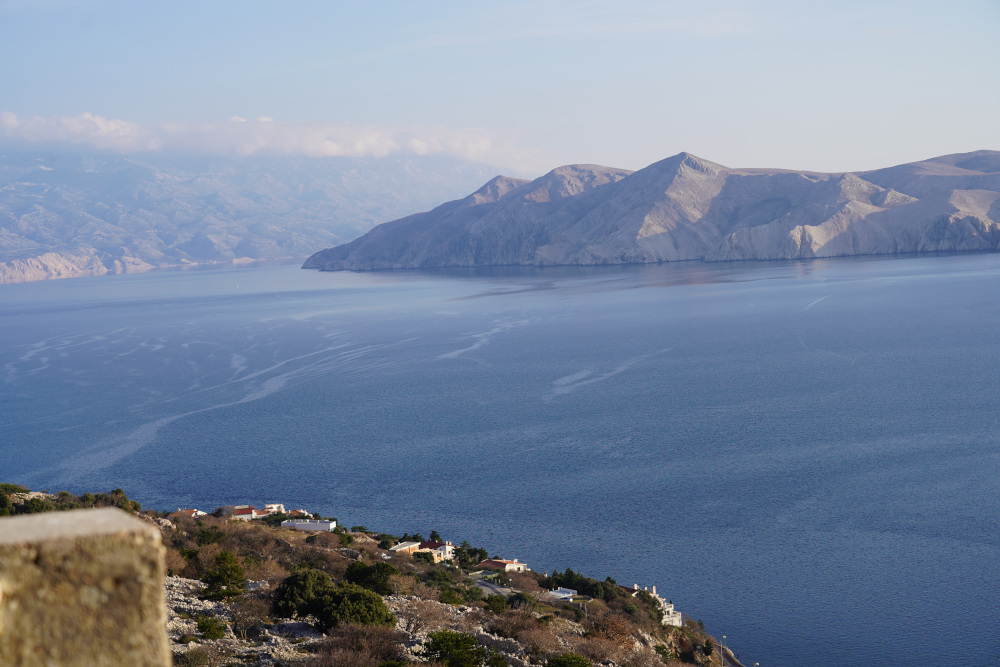
 To Top
To Top